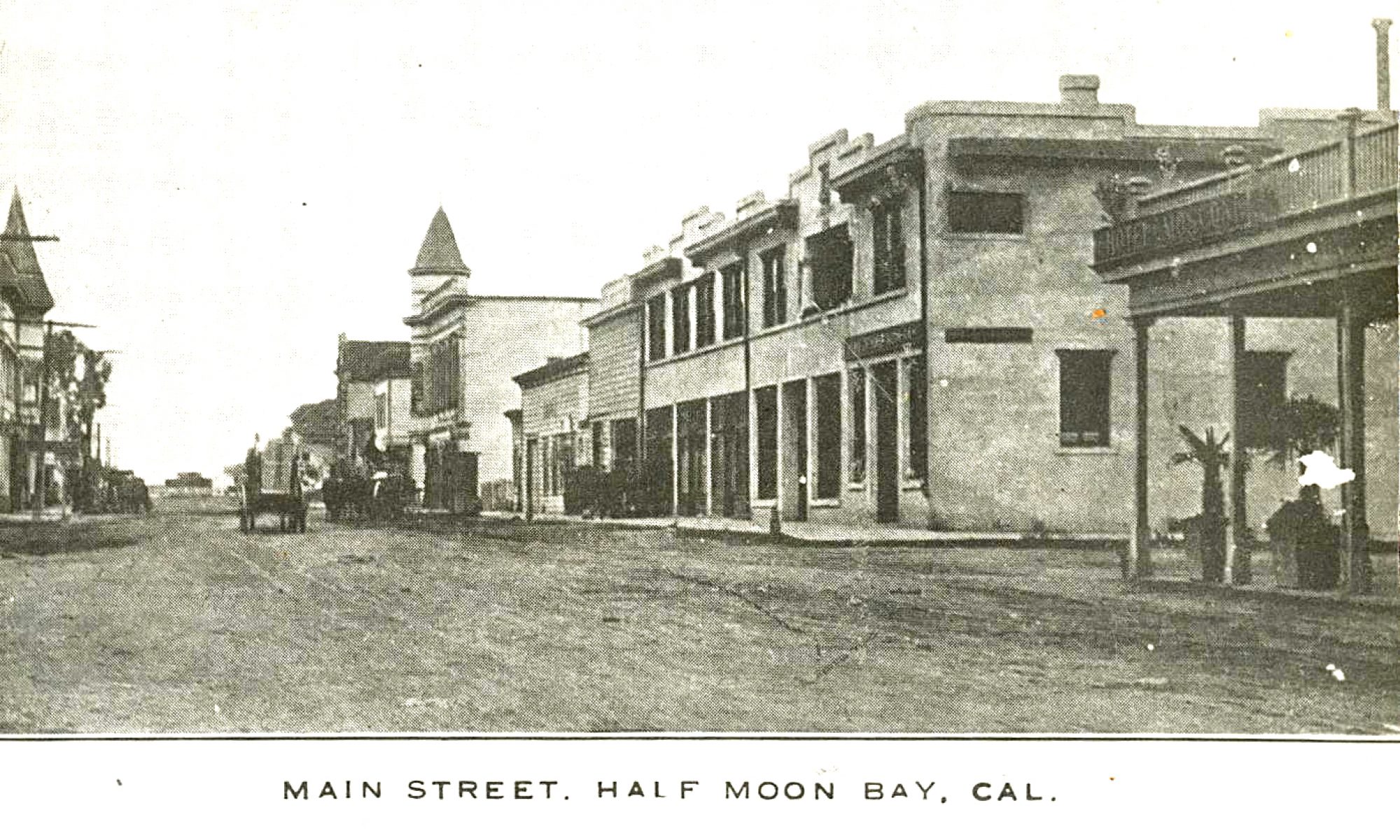 In the 1950s, during a daredevil operation to rescue stranded hikers, Sheriff Earl B. Whitmore lowered himself, using a cable, at Devil’s Slide. Whitmore was San Mateo County Sheriff from 1950-73. He passed away at age 90 in San Rosa in late May 2008.
In the 1950s, during a daredevil operation to rescue stranded hikers, Sheriff Earl B. Whitmore lowered himself, using a cable, at Devil’s Slide. Whitmore was San Mateo County Sheriff from 1950-73. He passed away at age 90 in San Rosa in late May 2008.
A Tale of Two Sheriffs
By June Morrall
(I wrote this in 1999)
The polls indicated “Big Jim” McGrath, the 58-year-old six-term county sheriff, faced almost certain defeat in the 1950 election.
San Mateo County’s landscape had changed dramatically since McGrath took office in the late 1920s. He had inherited a community where a powerful gambling network permeated every shadowy political corner.
An equally potent, more positive influence during McGrath’s tenure was the dramatic growth of the county. Industry moved in, home building was on the rise, and the population soared to 250,000.
The sheriff attempted to accommodate all factions, but political debts, as usual, had priority.
Sheriff McGrath’s career was dogged by years of grand jury investigations and his reputation sullied by an inappropriate relationship with gambling czar Emilio Georgetti. When the heat was on after each grand juries’ finding, the county’s gambling houses would shut down–only to quietly reopen when the pressure subsided.
Perhaps foolish pride led to “Big Jim” McGrath’s decision to seek one last re-election for the coveted county sheriff’s badge. After all, the easily identifiable 300-pound sheriff hadn’t lost his presence and charisma, but the 1950 election was not a personality contest. This time voters demanded reform in the sheriff’s office.
McGrath’s formidable opponent was Earl B. Whitmore, a handsome 32-year-old Redwood City police sergeant and graduate of Sequoia High School who studied law at the University of San Francisco.
Sheriff McGrath’s campaign focused on his valuable experience as head of the county civilian defense committee. In that critical role he was in charge of preparing Peninsula communities for an atom bomb attack by the Soviet Union, a widespread fear at the time.
But the political skills honed by McGrath were attuned to days gone by. In contrast, Whitmore, with an impeccable ear for good public relations, represented the model of modern law enforcement. As the reform candidate, Whitmore promised voters a shake-up of the sheriff’s department staff, a business-like administration and a merit system to replace the old one based on seniority.
It was no surprise that Whitmore swept the veteran sheriff out of office by a vote of better than three-to-one. The final result was Whitmore, 64,095; McGrath, 21,236.
After receiving the election results, the defeated McGrath announced that he had no future plans, and the lifelong bachelor retired to the Redwood City home he shared with his elderly father.
Out of public view, McGrath’s past association with people like Georgetti continued to haunt him. In 1952, representatives of the State Crime Commission visited McGrath’s home. The investigators sought leads in the unsolved dynamite death of San Mateo sportsman, Tom Keen. A close friend of McGrath, Keen, inventor of the “totalizer,” a betting machine, had suspected links to underworld figures.
The strain and pressure of non-stop interrogations may have taken its toll on the former sheriff. McGrath’s health began to fail, and 60-year-old “Big Jim” suffered a fatal heart attack a few months later.
Political life was intoxicating for the new county sheriff. Whitmore had thoroughly enjoyed campaigning and was bitten by the political bug. After only two years as sheriff, he considered a possible run for Congress, or a seat on the state Board of Equalization. He reconsidered and successfully won re-election as county sheriff.
Whitmore was serious about the quality of his department and received special training at the FBI school. During the 1958 election he assured voters of “the same kind of honest, impartial law enforcement I’ve tried to give the county during the past eight years.”
Whitmore had been elected as a reform candidate but he, too, would face corruption allegations in the early 1960s. The background of his problems read like a script written for a B-grade Hollywood movie.
The California State Attorney General’s office had been secretly investigating gambling in San Mateo County. They even went so far as to recruit a Burlingame pharmacist to act as their undercover agent.
The information they gathered was turned over to San Mateo County, and a grand jury pursued a “bookie probe.” The grand jury heard testimony from Brisbane Police Chief Calvin Smith, who alleged he had been offered a $300 per month bribe by one of Whitmore’s officers to allow bookmaker telephones in his jurisdiction.
Simultaneously, the grand jury heard the state’s undercover agent/pharmacist recount a conversation between a Millbrae bookie offering a bribe to a member of the San Mateo County district attorney’s office.
Rumors flew and Whitmore requested a hearing before the grand jury to clear his name. Although the grand jury testimony was sealed, we do know that a serious fissure existed between Sheriff Whitmore and District Attorney Keith Sorenson.
As a result of the grand jury findings, one of Whitmore’s men was fired, and later indicted, but Whitmore and the district attorney’s office were exonerated.
Whitmore remained a highly regarded public figure during his tenure in office, but the bookie scandal tarnished his image.
Soon Sheriff Whitmore ws ready to enter the political arena again. He announced he would seek Congressman J. Arthur Younger’s seat. Younger died in office and a special election was called.
The field of Republican contenders was large, but the contest boiled down to two candidates and national attention focussed on maverick Palo Alto attorney Paul N. “Pete” McCloskey and Shirley Temple Black, the former famous child movie star.
Continue reading “RIP: Earl B. Whitmore, former San Mateo County Sheriff”
